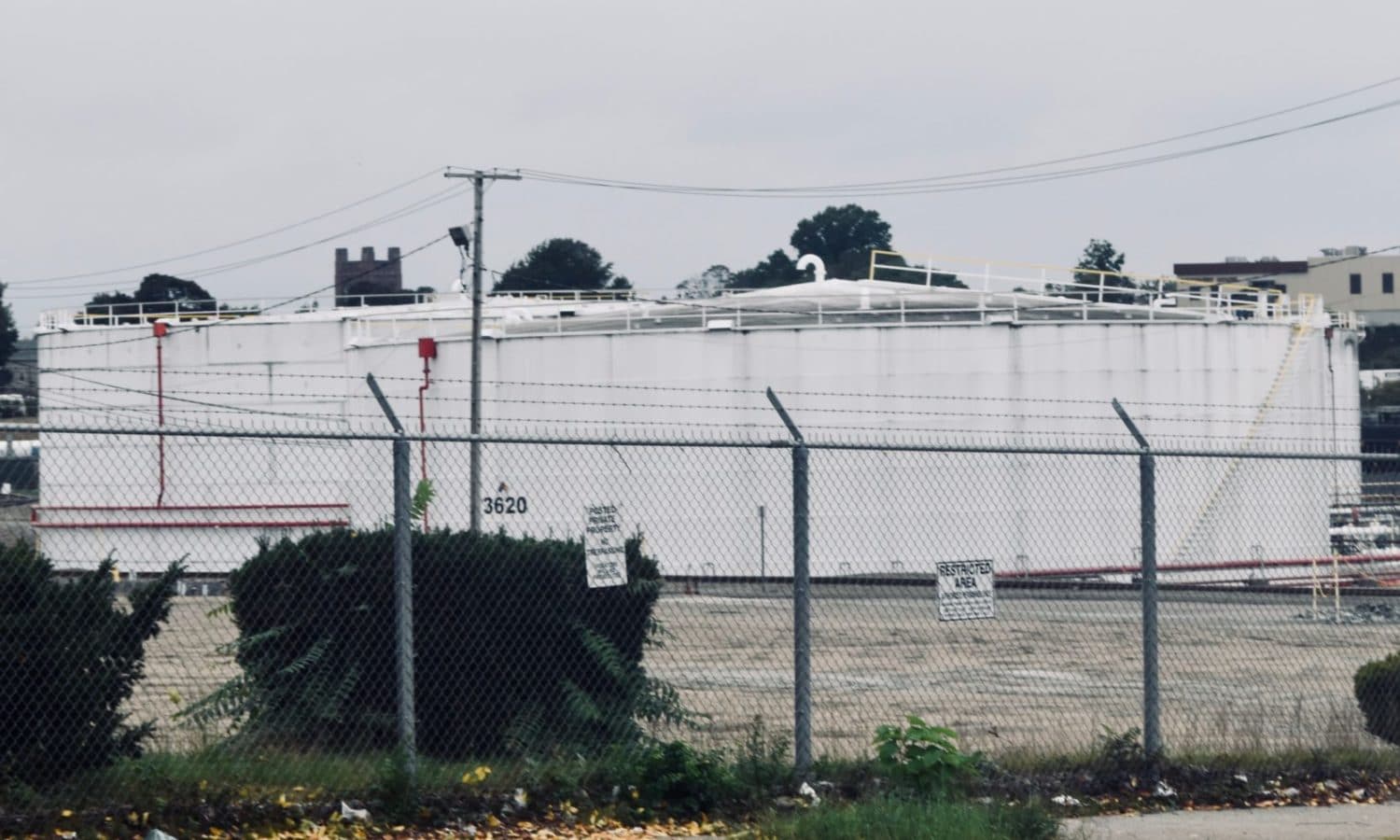Washington Park area community and environmental groups challenge Shell Oil’s air quality permit renewal with DEM
Shell Oil Products’ US Terminal at 520 Allens Ave is in the process of renewing their air quality permit, and two local groups, No LNG in PVD and the Washington Park Neighborhood Association(WPNA), are challenging that permit in a letter to the Rhode Island Department of Environmental Management (DEM) on both environmental and public health grounds. The letter is signed
April 29, 2019, 2:40 pm
By Steve Ahlquist
Shell Oil Products’ US Terminal at 520 Allens Ave is in the process of renewing their air quality permit, and two local groups, No LNG in PVD and the Washington Park Neighborhood Association(WPNA), are challenging that permit in a letter to the Rhode Island Department of Environmental Management (DEM) on both environmental and public health grounds.
The letter is signed by Monica Huertas, director of No LNG in PVD and Linda Perri of the WPNA. Four state wide environmental groups, Climate Action RI, Nature’s Trust Rhode Island, Sierra Club – Rhode Island Chapter and Sunrise RI have lent their endorsement and support.
“We are asking that DEM not renew the permit, or at the very least do your job and manage it, monitor it, enforce it and fine them,” said Huertas, reached by phone. “We want the DEM to use the resources from the fines to help improve the Port.”
The letter is requesting a “public hearing that is fully accessible to the impacted community.”
Past DEM hearings concerning issues of concern to Washington Park residents have been held in “a police station or a guarded theater venue that did not allow bags, food or drink inside,” notes the letter. Huertas and Perri see these location as “intimidating” and maintain that such venues “discourage public participation.”
The public hearing should take place “in Washington Park and/or South Providence in a location that is welcoming to community members, such as a community center, church, or school,” states the letter, adding that, “[i]nterpretation should be provided in the languages spoken in the impacted community, and the space should be welcoming to families and children as well as accessible for community members with disabilities. The public hearing must be held at a time that is convenient for community members to attend – on a weekday evening starting at 5:30 or 6pm or during the day on a weekend.”
The community groups are also requesting “an extension of the comment period past April 29, 2019 and request that the RIDEM conduct outreach and community engagement in Washington Park and South Providence. Because the area most directly impacted by the Shell Terminal is an Environmental Justice Community, DEM should conduct community outreach in order to obtain substantive engagement in this decision making and permitting process. Community engagement can also inform the best time and location for a public hearing.”
The letter then lists information on the makeup of the community surrounding the Port, the toxics released at Shell Terminal, (including 332 pounds of the carcinogen benzene and 170 pounds of ethylbenzene), community asthma rates, the Terminal’s safety record, and the threat of sea level rise and storm surge.
The letter concludes:
“Business as usual at Shell Terminal is not acceptable to our community. Air pollution from this facility is an ongoing environmental injustice. The draft permit should not be approved, and ideally a large high-risk fuel storage facility and major air polluter should not be allowed to operate in a high-density residential area that is also at risk of sea level rise and storm surge.
“Significant changes are needed to improve air quality and address environmental justice issues, and the impacted community needs to be meaningfully involved in all decision-making.
“Emission standards should be made much more stringent. Compliance and enforcement operations should actively inspect enforce those standards, and high fines and penalties should be incurred for any emissions that risk causing health impacts. The funds generated from these fines should support community-based projects for disaster preparedness, climate resilience, and environmental improvements in Washington Park and South Providence.
“DEM should also require that Shell Terminal immediately commence actions to protect the hazardous facility from sea level rise and storm surge, using the highest range scientific projections for sea level rise and based on a 500 or 1000 year storm event. A Risk Management Plan for worst case scenarios should be required, and shared with the impacted community to inform the community’s emergency response and disaster preparedness plans. As the party responsible for the risk, Shell should be required to pay into a community-controlled neighborhood fund for multilingual and culturally relevant community preparedness activities.
“It is a part of DEM’s mission to build healthy and more resilient communities, now is the time for DEM to protect Washington Park and South Providence residence from the exposure to toxic chemicals, carcinogens, asthma causing pollution and an increased danger during a disaster.”
UpriseRI is entirely supported by donations and advertising. Every little bit helps:
Become a Patron!






